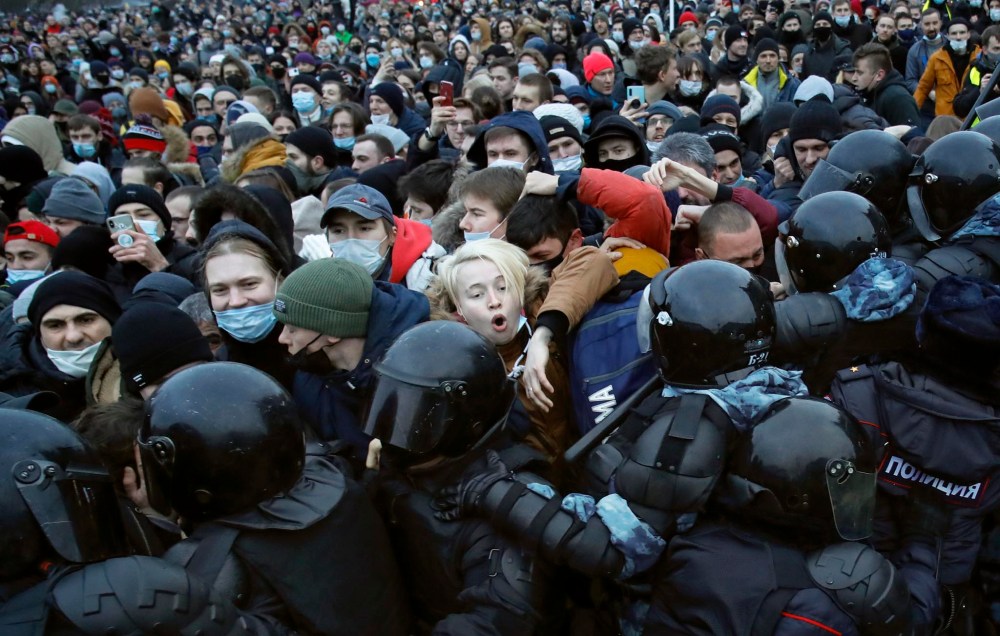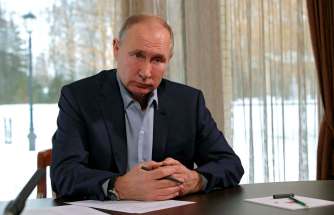Winds of change are blowing toward Putin
Read this article for free:
or
Already have an account? Log in here »
To continue reading, please subscribe:
Monthly Digital Subscription
$0 for the first 4 weeks*
- Enjoy unlimited reading on winnipegfreepress.com
- Read the E-Edition, our digital replica newspaper
- Access News Break, our award-winning app
- Play interactive puzzles
*No charge for 4 weeks then price increases to the regular rate of $19.00 plus GST every four weeks. Offer available to new and qualified returning subscribers only. Cancel any time.
Monthly Digital Subscription
$4.75/week*
- Enjoy unlimited reading on winnipegfreepress.com
- Read the E-Edition, our digital replica newspaper
- Access News Break, our award-winning app
- Play interactive puzzles
*Billed as $19 plus GST every four weeks. Cancel any time.
To continue reading, please subscribe:
Add Free Press access to your Brandon Sun subscription for only an additional
$1 for the first 4 weeks*
*Your next subscription payment will increase by $1.00 and you will be charged $16.99 plus GST for four weeks. After four weeks, your payment will increase to $23.99 plus GST every four weeks.
Read unlimited articles for free today:
or
Already have an account? Log in here »
Hey there, time traveller!
This article was published 25/01/2021 (1780 days ago), so information in it may no longer be current.
Russian President Vladimir Putin sent his police out in riot gear on Sunday to club and imprison citizens who joined street demonstrations in support of Alexey Navalny. Mr. Navalny, a persistent critic of Russian government corruption, survived an August poison attack and was arrested when he returned to Moscow Jan. 17.
Mr. Putin responded to mass protest in the same way Belarusian dictator Alexander Lukashenko did. After Mr. Lukashenko declared himself the winner of his country’s highly suspect Aug. 9 election, the people took to the streets telling him to quit. He sent his police out to club and imprison them into submission.

Both leaders are kept in power by police violence. They should be taking the hint, opening the way to democratic reforms and preparing to relinquish power.
Alexey Navalny has amazed the world by his exceptional courage. The August attack against him, which was pretty obviously carried out by President Putin’s secret police, showed that the authorities in Russia want him dead.
Mr. Putin, of course, says he had nothing to do with it, just as he had nothing to do with earlier attacks on his political enemies in London and Salisbury. Mr. Navalny, however, has published the recording of his phone conversation with one of the secret police poisoners, whom he tricked into explaining why the attack failed.
Despite the obvious danger to his life, Mr. Navalny returned to Moscow from his convalescence in Berlin. President Putin’s police clapped him behind bars as soon as he landed, leaving him at the mercy of the poisoners who botched the August attempt on his life. Mr. Navalny knew he could not effectively campaign against the Putin regime from the safe distance of Berlin.
Foreign Affairs Minister Marc Garneau should express Canadians’ admiration for Mr. Navalny’s courage. He should make common cause with other democratic governments to shine a spotlight on Mr. Navalny in the hope of sparing his life.
The tens of thousands who demonstrated Sunday in the streets of Russian cities showed that something has changed in Russia. Such demonstrations in the recent past have been smaller and more scattered. Now that President Putin’s friend Donald Trump is gone from the White House, Russians who are tired of Vladimir Putin’s interminable rule may be feeling more free to demand reform.

Canada, the United States and their European allies should be looking ahead to a post-Putin, post-Lukashenko era in Russia and Belarus. Already, the International Ice Hockey Federation has pulled next summer’s world championship out of Minsk, even without an alternate city to use instead, because of a feeling of revolution in the Belarusian air.
The wind of change that started in Minsk may now be blowing through the streets of Russian cities, as well. Club-swinging police and government poisoners can do only so much to keep a dictator in power once the country decides that the time for change has arrived.
Though it is much reduced from its imperial glory in the Soviet era, Russia still wields nuclear weapons and still threatens its neighbours in eastern Europe. A peaceful and prosperous Russia could be serving its own people and contributing to the general welfare of humanity. Canada should encourage the Joe Biden administration in Washington and other democracies to nudge Russia and Belarus in that direction.










